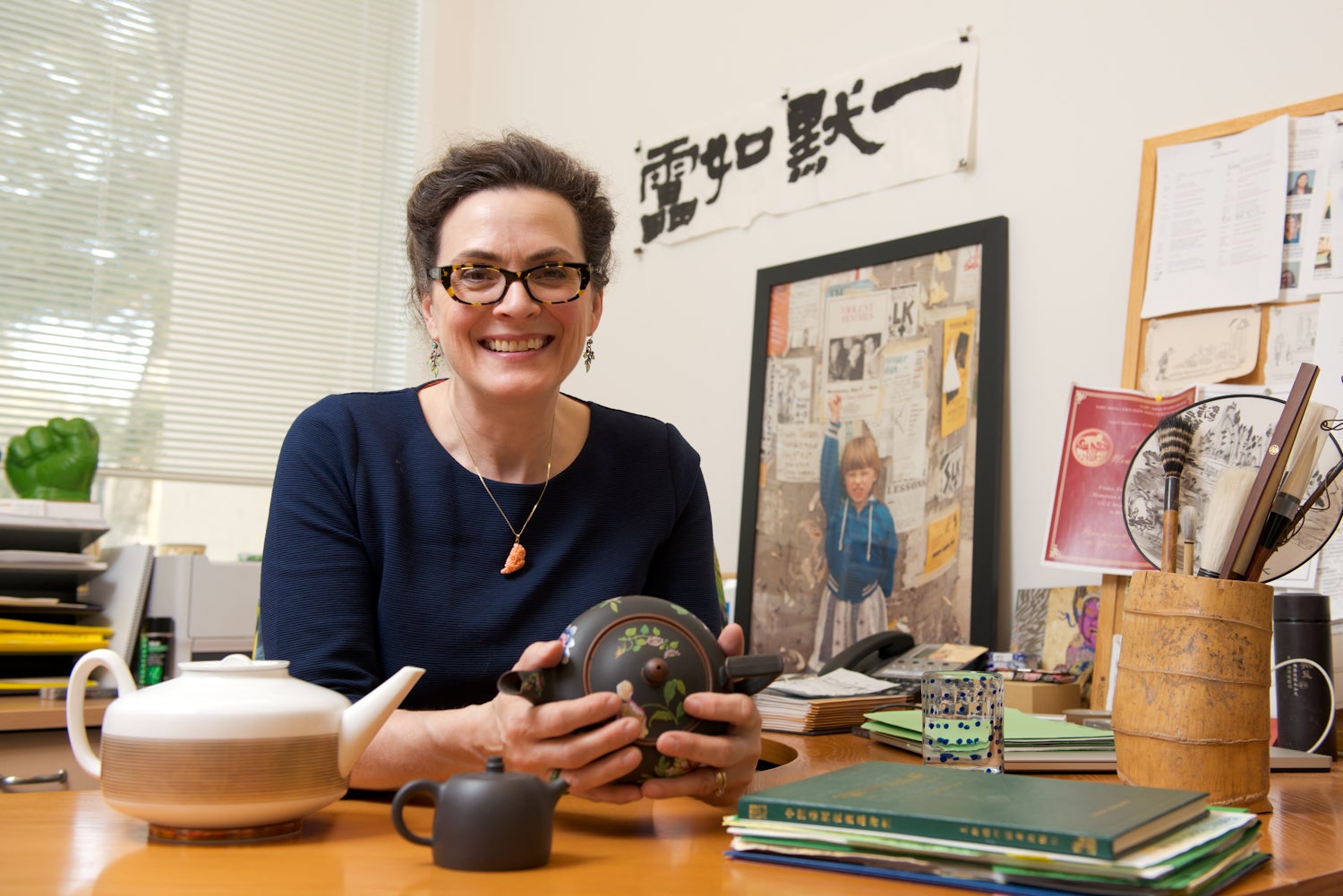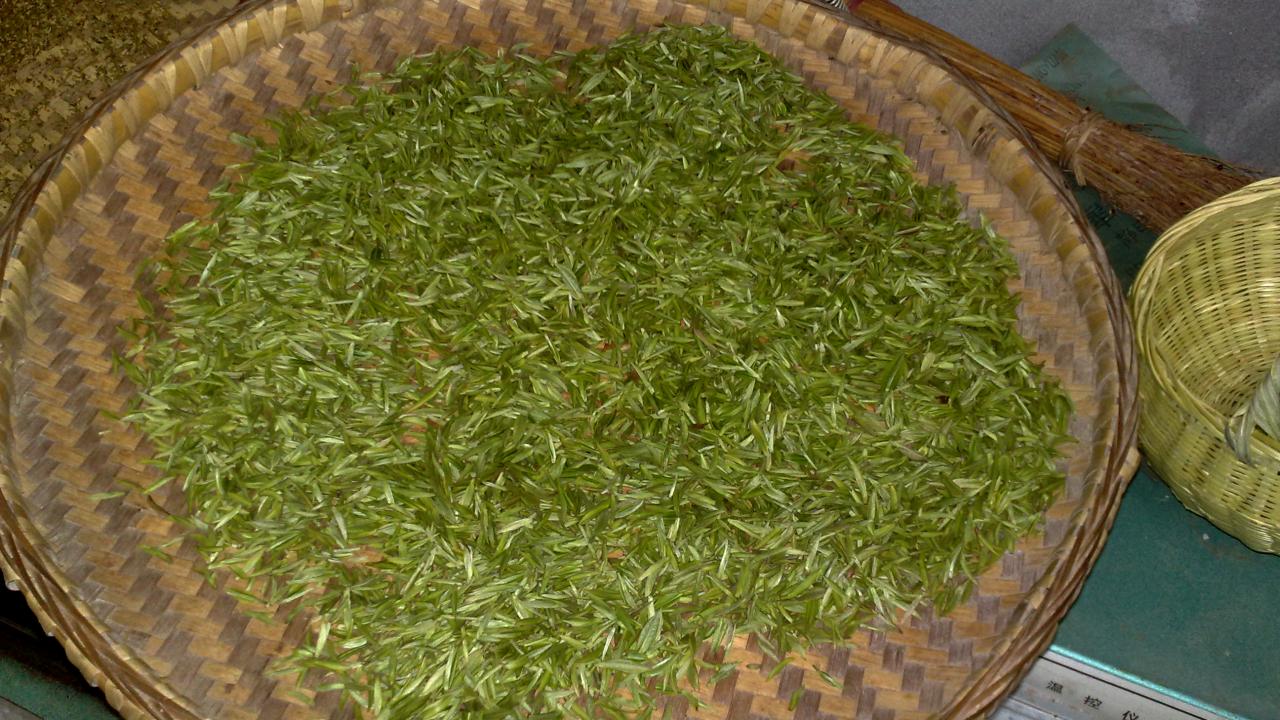Quick Summary
- Colloquium: “The Basics of Tea: Tea and People”
- University already a research leader in wine, coffee, beer and other beverages
- Talks will cover health effects, making tea, ceramics used, cultivation
UC Davis will launch its Global Tea Initiative with a symposium bringing together the cultural and scientific aspects of the world’s most popular prepared beverage. The colloquium, “The Basics of Tea: Tea and People,” is a first step in creating a center for the study of tea culture and science on campus.
The colloquium takes place May 12 from 3 to 7 p.m. in the ballroom of the Activities and Recreation Center at UC Davis. It is free and open to the public, but advance registration is required.
The initiative is a global, transdisciplinary teaching, research and outreach effort for tea and tea-related studies in the humanities, arts, social sciences, agriculture and health. The initiative will make the university a research leader in tea, as it already is in wine, coffee and beer.
Internationally recognized experts on tea
The colloquium will feature speakers from throughout the world speaking about the health benefits of tea, vessels for tea made from a rare clay, the various types of tea cultivars, and how tea culture is involved in defining an identity for a nation. The colloquium was organized and will be led by Global Tea Initiative director Katharine Burnett, associate professor in the Department of Art and Art History and director of the East Asian Studies Program.
“The Global Tea Initiative opens new approaches of inquiry that will raise new questions, promote research in new areas and advance new bodies of knowledge more quickly,” Burnett said. “It will put UC Davis at the forefront of academic research on the multiple facets of human well-being touched by tea.”
Talks cover ceramics to health
- “Purple Clay Pots: Zisha Ware of Yixing” by Wingchi Ip, Lock Cha Tea House, Hong Kong. A tea master, tea-ware expert and designer, Ip will speak about vessels, made from a rare clay, that hold heat well and enhance tea’s flavor.
- “The Science of Tea Cultivars” by Yaoping Luo, dean, Tea Research Institute, Zhejiang University, China. Luo will address the myriad teas of China and their cultivation.
- “The Potential Positive Cardiovascular Effects of Tea,” by Carl L. Keen, MARS Endowed Chair in Developmental Nutrition, and professor of nutrition and internal medicine, UC Davis. Keen will give an overview of tea’s potential health benefits, with an emphasis on its effects on the vascular system.
- “Making Tea, Making Japan” by Kristin Surak, senior lecturer in the Department of Political and International Studies, School of Oriental and African Studies, University of London. Author of Making Tea, Making Japan: Cultural Nationalism in Practice, Surak will explore the relationship between culture and nation in Japanese tea practices past and present.
A holistic approach to tea
The UC Davis Office of the Provost and the deans of Humanities, Arts and Cultural Studies, and Social Sciences, have provided seed money for the initiative. Plans for the Global Tea Initiative include teahouses in the UC Davis Arboretum, Chinese- and Japanese-style gardens, endowed professorships, courses and workshops for industry and the community, symposia, and peer-reviewed research publications.

“With the Global Tea Initiative, physicians will share their research on tea’s benefits for health; scholars will study the cultural significance of tea ware, and related arts from around the world will be exhibited and explained; and the agricultural prowess of UC Davis will be used to improve many traits in tea cultivars,” said Burnett.
“No other institution anywhere is even attempting to create a holistic research center on this scale, and no other institution is as well suited to try it,” she said. “We need to continue the conversation, not only on campus but with other top research institutions and experts around the world.”
Media Resources
Katharine Burnett, Art and Art History, 530-752-5623, kpburnett@ucdavis.edu
Jeffrey Day, College of Letters and Science, 530-219-8258, jaaday@ucdavis.edu
